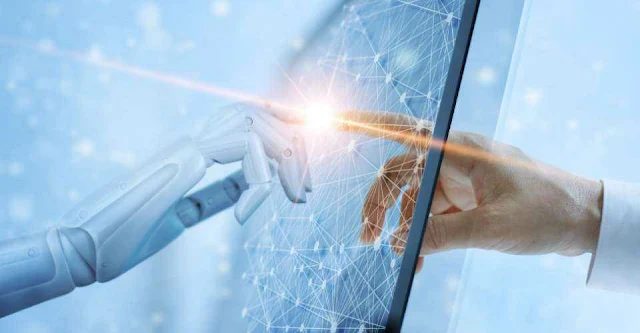Tech Leaders Meet Vatican Discuss Artificial Intelligence and Prosperity
Scholars, tech experts, and business leaders gathered at the Vatican for a two-day conference to discuss emerging technologies and advancing the good of humanity. (Representative photo: Canva)
- Keyun Ruan, chief information security officer at Alphabet, Google's parent company, asked the question, "Why do we need AGI (Artificial General Intelligence)?" refers to artificial general intelligence -- AI systems that can match or surpass deep human intelligencevarious situations.
Speaking at a conference on human and technological development at the headquarters of the Pontifical Academy of Sciences on May 23, Ruan said that determining AGI's purpose and service to humanity is “a broader conversation that we have never had at the level ofglobal."
Scholars, technology experts and business leaders gathered at the Vatican for a two-day conference to discuss integrating new technologies and advancing the good of humanity.
OpenAI, the creator of ChatGPT, defines AGI as “highly autonomous systems that outperform humans in the most economically valuable jobs,” and developing them has been a key goal of the company as well as Meta, the parent company of Facebook, Google and others.
“It seems like some people think this is the right goal because we need it in the short term, so we should pursue it,” Ruan said. “But whether we should (make) something smarter than us when society isn't ready is another question.”
The development of AGI requires huge monetary investments, “and there is no equal amount of investment and funding, in terms of ethics, and in terms of human progress,” he said. "We want the equation to balance before we race towards AGI."
As artificial intelligence technology advances, “the framework for evaluating whether AI is being used properly or not is a human framework,” said Father Philip Larrey, a philosophy professor at Boston College and chairman of Humanity 2.0, a nonprofit organization. seeks to integrate technology and human progress.
Pastor Larrey cited a Goldman Sachs report that estimates that in the long term artificial intelligence could replace 300 million full-time jobs. Just because humanity can produce these tools quickly doesn't mean they should do so without finding adequate solutions for humanity to adapt to them, he said, but “the trend is to give greater autonomy to AIbecause they are good at this. the work we want them to complete.”
Dennis Snower, an economist and president of the Global Solutions Initiative, told Catholic News Service that today “artificial intelligence is driven largely by business interests focused on profits and shareholder value, and this is not aligned with our needsto develop. individually and socially.”
Technology developers as well as business and government leaders need to “realign the profit motive with social and environmental needs,” he said, and faith “is an important instrument that will enable us to achieve this broader perspective.”
“Now that we are facing global problems, we need, among other things, to see ourselves as part of a common humanity when addressing these problems, and the great religions are an important stepping stone in that direction,” Snower said.
Ketan Patel, CEO of Greater Pacific Capital and chair of the Force for Good Initiative, told CNS that there is currently a shift in investment towards human well-being and that religious leaders must be involved in guiding the movement because they “have a perspective beyond motivestrading."
James Pawelski, director of education at the University of Pennsylvania's Center for Positive Psychology, said at the conference that advancing human development requires "connecting culture to physical and mental health," as well as identifying the role of culture in fostering social relationshipsand foster spirituality.
Elisabeth Kincaid, director of the Center for Ethics and Economic Justice at Loyola University New Orleans, said that "art, culture (and) relationships can take us beyond ourselves," but "artificial intelligence will never be able to capture something beyond ourselves."
The Catholic tradition is filled with hope, he said, but also tinged with a sense of “bitterness,” or the feeling that human life is not what it should be, which is why “human progress in relation to AI, which could promise us a utopia, we must alwaysaware of the beauty and pain we all experience."
